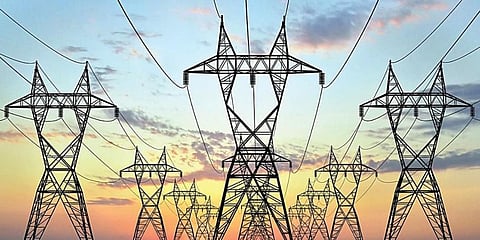

CHENNAI: After a gap of five years, the State-run Tamil Nadu Generation and Distribution Corporation Ltd (TANGEDCO) is set to hike electricity tariff. Among domestic consumers, those who consume up to 200 units of electricity will see their bills go up by Rs 27.50 per month.
Those consuming 300 units bi-monthly will see a Rs 72.50 hike per month. Electricity minister V Senthil Balaji on Monday said the hike is necessitated by the huge loss incurred by the public sector unit over the last 10 years.
TANGEDCO's proposal will be submitted to the Tamil Nadu Electricity Regulatory Commission and will come into force after its approval.
TANGEDCO will take up a few other key proposals as well, among them a plan to encourage consumers to voluntarily give up the free 100 units. The power utility has also proposed to allow domestic consumers charge their e-vehicle in their own houses.
On the flip side, commercial consumers can provide public charging facilities in the same service connection.
Another proposal that will give much relief to residents of apartments and gated communities is that common facilities such as gymnasium, swimming pools, sewage treatment plant, water treatment plant and fire hydrant system in residential complexes are being brought under a common supply tariff, instead of commercial.
Professionals such as doctors, engineers, and lawyers can use up to 200 sq.ft of their house for professional work. Domestic consumers can pay bills either online or via counter if the bill is less than Rs 2,000.
Power bill above Rs 2000? You may have to pay online
Those who are having a bill above Rs 2,000 will mandatorily have to pay it online. The tariff was last revised on November 11, 2017. Senthil Balaji told media persons that TANGEDCO's loss was Rs 18,954 crore in 2011-12, it rose to Rs 1,13,266 crore in March 2021.
"The present government has decided to accept the power utility's 100 per cent loss from 2021-22. But there was no such commitment in the last 10 years like this. As a result, the power utility has been pushed to borrow money from financial institutions and banks. This has resulted in an increase in TANGEDCO;s total debt to Rs 1,53,823 crore from Rs 43,493 crore in 2011- 12," he said, putting the blame on the previous AIADMK government.
He also pointed out that as power projects were not completed within time in the last 10 years, interest during construction has also increased by Rs 12,647 crore.
He said many infrastructure projects including the erection of substations and transmission lines were carried out without considering the sustainability, analysing the cost-benefit, leading to a huge debt burden.
"According to the UDAY scheme, the purpose is to financially turn around the power distribution companies by taking 75 per cent of its loans and debts to reduce interest and repayment commitments. However, out of the total loan outstanding of Rs 81,300 crore as on September 30, 2016, the Centre took Rs 22,815 crore alone during the year 2017-18 to 2020-21. After that, TANGEDCO continued to incur losses and there is no turnaround," he added.
Tariff for libraries in rural/village areas
Libraries in rural/village areas are being charged Rs 5.75 per unit as energy charges and Rs 60 per month as fixed charges. To encourage and improve reading habits among the public, the tariff has been proposed as a domestic rate without subsidy, thereby reducing current consumption charges by 30% for libraries running on a non-commercial basis
Proposals for other LT categories
50 paise per unit increase for 93 per cent (2.26 lakh) of cottage and tiny industry consumers
Rs 50 per month increase for 53 per cent (19.28 lakh) of commercial consumers
Rs 1 per unit increase for private educational institutions
70 paise per unit increase for power loom consumers (750 units of free supply to be continued)
Rs 1.15 per unit increase works out to 18% for low tension industrial consumers after 8 year
Proposals for HT categories
40 paise per unit increase for industrial customers
65 paise per unit increase for Railways & govt education institutions
50 paise per unit minimum increase for HT commercial consumers
How much more will you end up paying?
100 units of free supply is being continued for all domestic consumers and free supply will be continued for hut consumers.
As per DMK's election manifesto, fixed charges of Rs 20 to 50 bi-monthly on domestic consumers have been withdrawn and total of 2.37 crore consumers will be benefitted.
Subsidy to hut, agriculture, power loom, handloom sectors, and places of public worship will be continued.